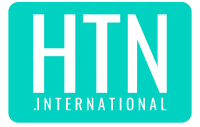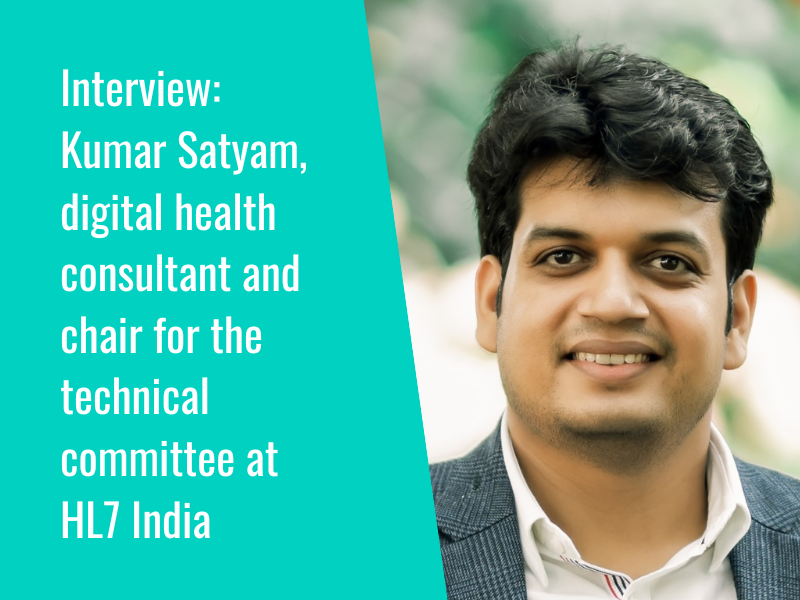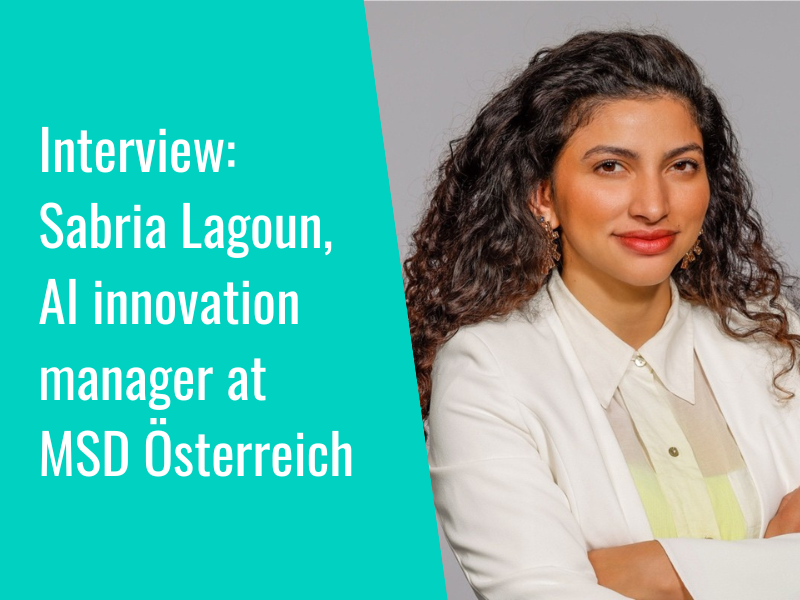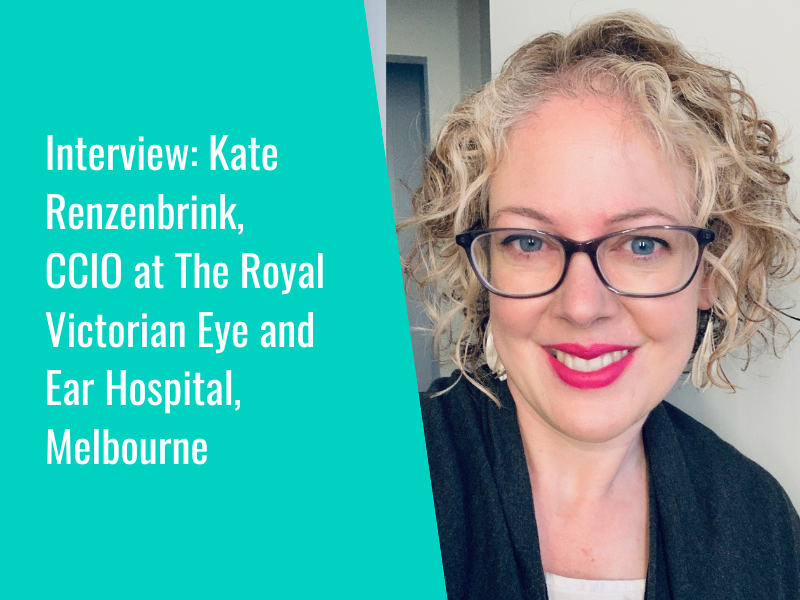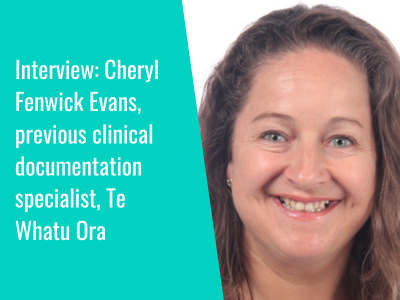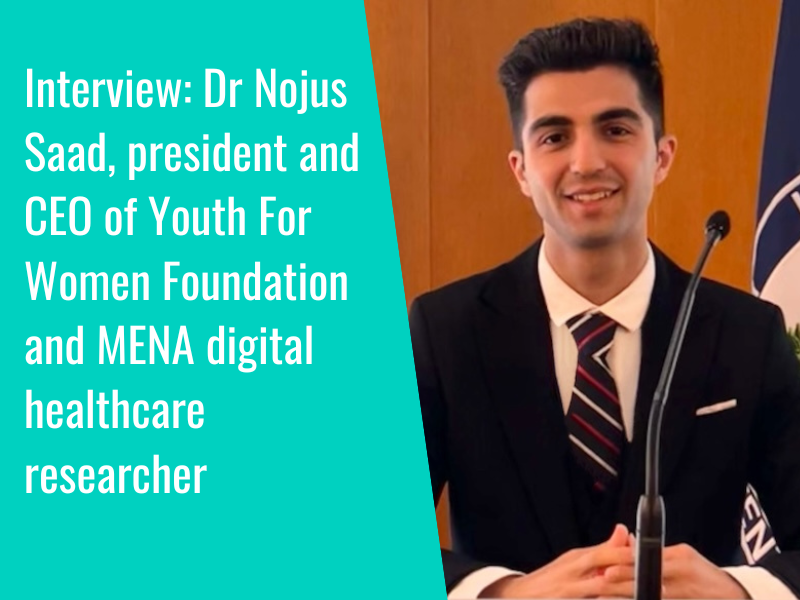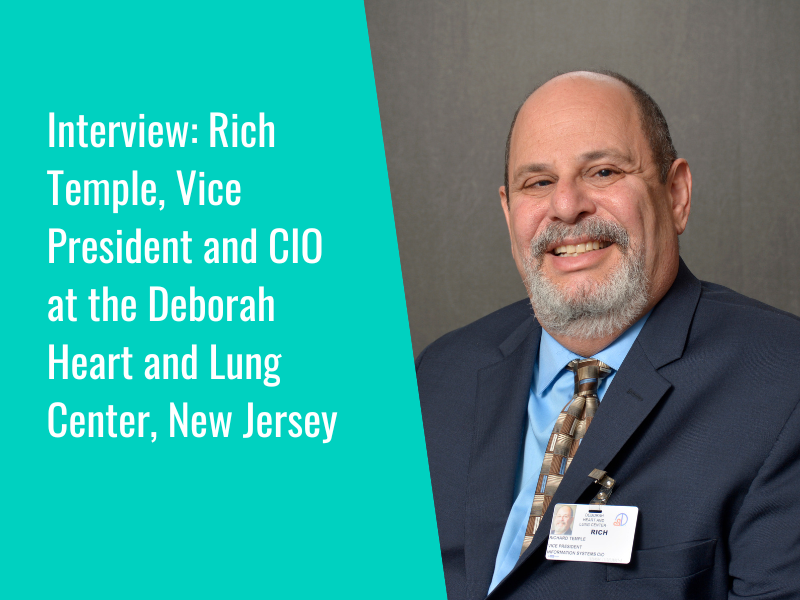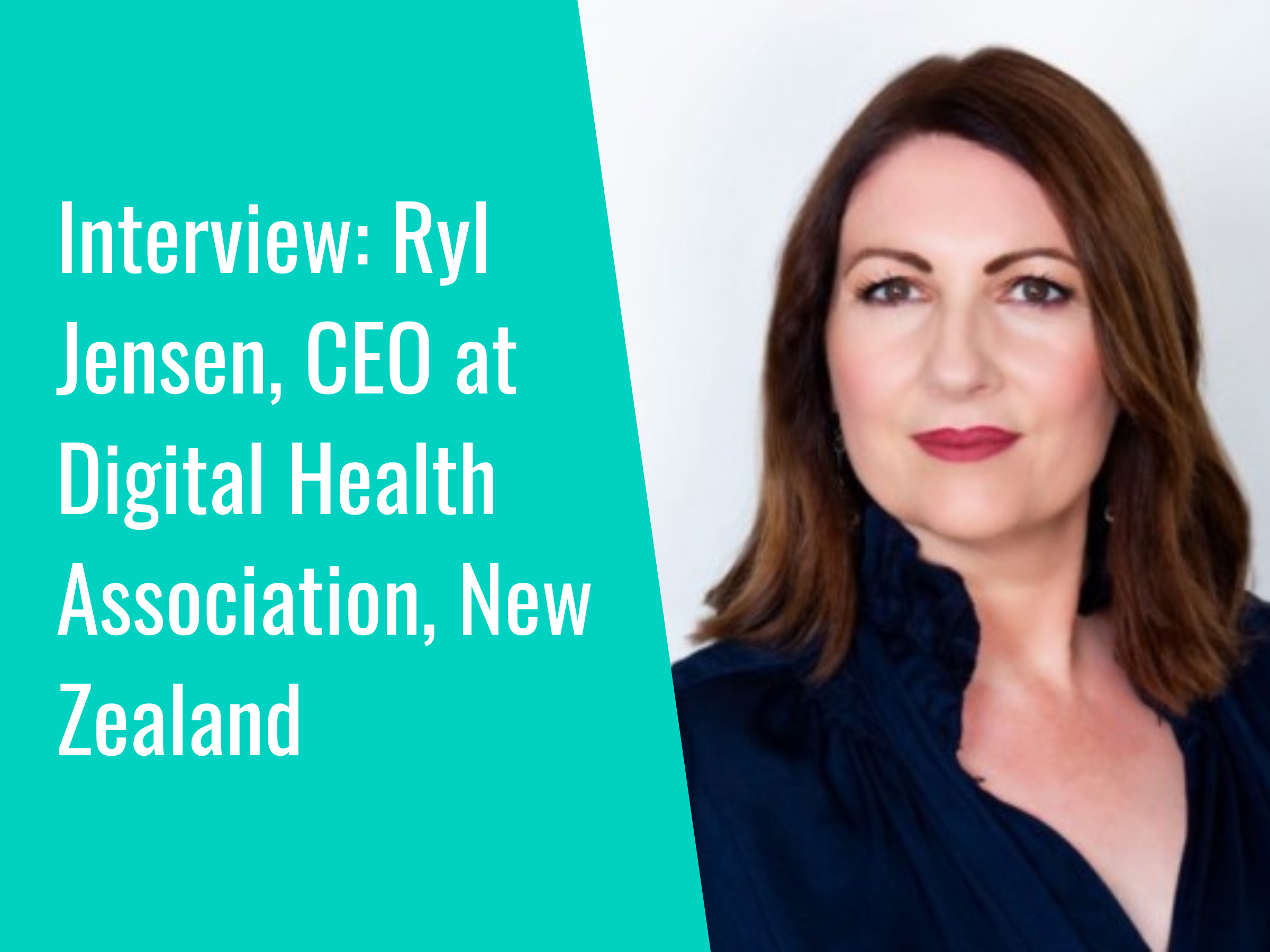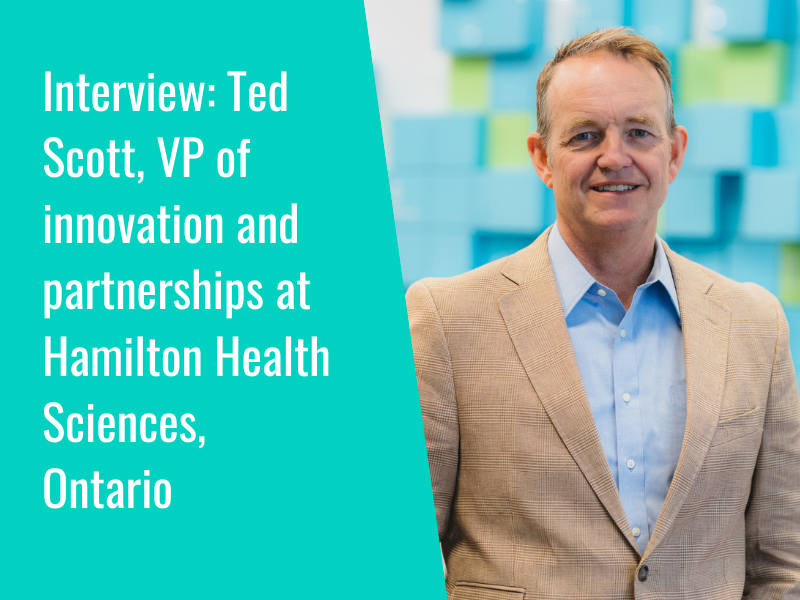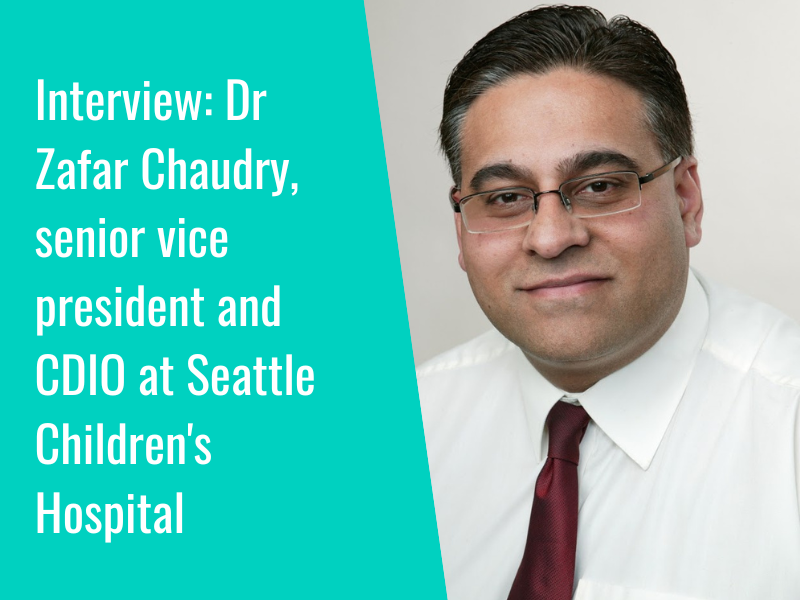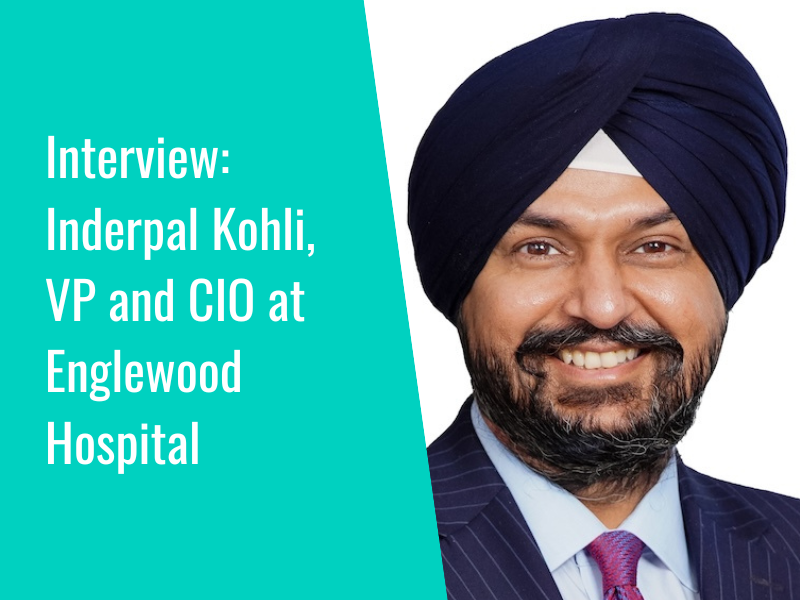For a recent interview, we caught up with Sabria Lagoun, former programme manager at Health Hub Vienna, and current AI innovation manager at MSD Österreich, to talk about all things digital and health in Austria.
Talking about her background, Sabria told us that she is originally French-Algerian and initially moved to Vienna for a PhD, before realising that she was “way more interested in communicating the science than making it”. This led her to launching her own company focusing on building bridges between science and technology and their real-world applications.
“I became programme manager at Health Hub Vienna, which is an innovation hub focused on finding the right startup technologies to solve healthcare problems,” Sabria continued, “before moving into the pharma industry to work on various topics – but data-related topics are still a main interest of mine.”
Austria and digital healthcare: the aftermath of the pandemic
We moved on to discuss some of Sabria’s experience with Health Hub Vienna, and particularly her work on a digital health white paper exploring the role of digital innovations during the pandemic and calling for sustained progress in this space.
On this, Sabria said that her team quickly realised that the situation with COVID was likely to last longer than the few weeks that was originally announced. They began to run interviews across the course of summer 2020, trying to understand how the pandemic “changed or gave a boost to digitalisation in Austria”.
From these interviews, Sabria highlighted that they found the pandemic leading to an “amazing push to digitalise”, with projects that had been “blocked for years now able to happen”.
She noted that Austria has “one of the oldest digital health records in Europe,” and shared some of the interesting findings unearthed by her team during their research, such as a document written on a typewriter which stated that “digitisation is the key to the future”.
Talking about ELGA, Austria’s national patient record, Sabria said that although there was a lot of digital infrastructure in place allowing clinicians to do things such as record the medication being prescribed to a patient, it was “not really being used” until COVID caused a sudden surge of adoption.
The sudden surge of activity wasn’t entirely positive, she acknowledged; the abrupt urgency around the widespread use of telemedicine led to things being handled in “a very chaotic way”, with people using WhatsApp or email for communications. This pushed public health agencies to call for solutions in areas such as online scheduling.
“It’s hard,” Sabria said, “because you’re working with systems that have either been inherited or they’re commercial, and have a monopoly locking them up. So when you want to start introducing something it’s a steep learning curve, and doctors aren’t always incentivised to use it.”
Prior to the pandemic, Austria didn’t have any official vaccination rates or a national register for vaccinations, Sabria said. “All of a sudden, there was a huge incentive from patients and from doctors, because of the emergency situation. That framework still exists – now there is further discussion happening around it with the establishment of the European Health Data space, about how we can formalise certain tools and structures.”
Sabria noted that when it comes to the push for digitisation, “in certain areas, the progress is not as satisfactory as we would wish”. She acknowledged challenges facing Austria including systems that are not user-friendly; issues with GDPR compliance; a lack of basic infrastructure, and challenges around cybersecurity.
“It’s also about data ownership, and the ability to sell data for research projects; making the data intercompatible is really a strategic issue.”
The lockdown meant that the hub began “trying to push stakeholders to digitalise as much as possible”, and “practising what we preached”, starting work using design thinking methods to try and understand the challenges faced by clients and what the right technologies would be to solve them.
Ultimately, Sabria reflected, “COVID was a horrible time – but it was an opportunity to digitalise as fast as you can, with way less regulatory hurdles than usual.”
Health tech in Austria
How does Sabria feel Austria is performing in terms of digital health? She shared that, from her perspective, Austria performs well in innovation considering its small size, and that “there’s a lot of great innovation coming from the country, some of which has international resonance. We have huge research and development and scientific centres, as well as a lot of funding going on.”
When it comes to the daily use and implementation of these innovations, however, Sabria said that complexities can arise from “fractured systems of payers and players”. She highlighted that Austria has nine different regions which each have their own decision makers, “and that’s only for the hospital sector”.
The challenge with a subsidised healthcare system is that “business models have to always be aligned with the public payment situation; and the incentives that may exist in the US for productivity or patient costs and things like that also exist in the public sector, but they have to be prioritised because performance is not measured in the same way”.
Another difficulty that Sabria mentioned relating to the use of the national health record is around “data siloes across the patient journey”, with data stewardship becoming a “huge topic from a compatibility perspective”. She added: “I really advocate for better use of this data, and reuse of secondary data”.
Finally, on the future of health tech in Austria, Sabria emphasised the need for better data sharing as “an urgent priority”. She said that being able to show the outcomes of innovations to every stakeholder from their unique point of view “would be the key” to unlocking progress.
“It has never been a technological problem,” Sabria concludes, “as some of the things we’re trying to achieve have been possible in the financial sector, which is also a sensitive sector, since the late 1990s. It’s not a question of cybersecurity or technology; it’s about how to break into the system and use the right innovation.”
We’d like to thank Sabria for her time in sharing her insights with us.
- 1
- 2
